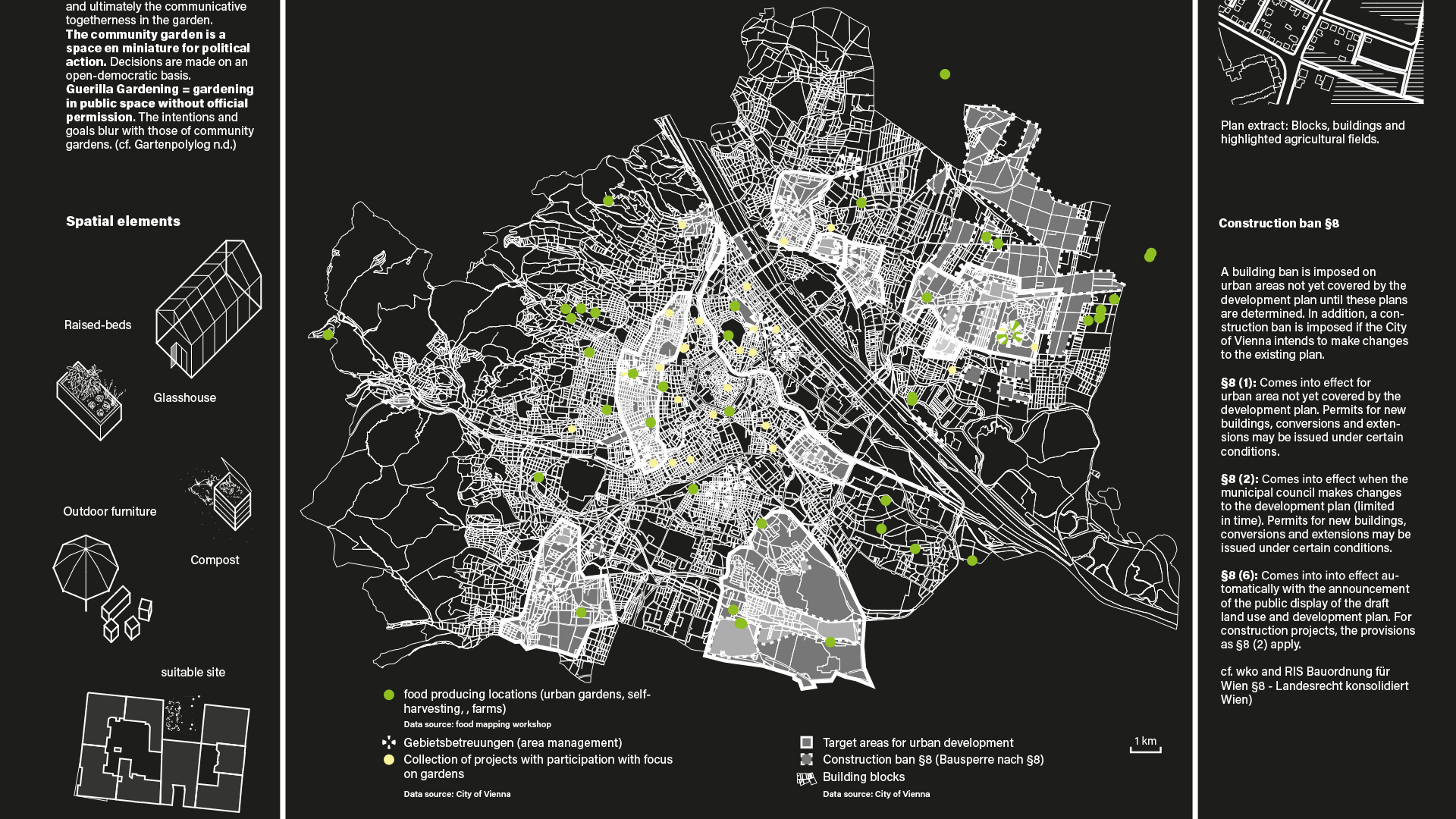03/2022
Food Atlas Wien – making food-related urban structures and processes visible by using Citizen Science
How can the importance and perception of food-related structures be harnessed for the city of the future?
Vanessa Giolai
Diploma in Architecture
E260-1 – Städtebau und Entwerfen
Supervisor: Angelika Psenner
The concepts of urban agriculture, urban food production and ecosystem are challenging the discipline of urbanism. The growing interest has expressed itself on a spatial level mainly in the reintroduction of food production in urban areas, in the forms of urban gardening, community gardening, or, on a larger scale, urban agriculture. Further activities involved in urban food provisioning are far from sufficiently researched in a coherent spatial context. However, the search for sustainable territorial strategies to (re-)connect urban areas with food supply has become inevitable for cities as climate change and geo-political crises or even pandemics become more prominent. Visualising spaces relevant to the production, processing, distribution, consumption, and disposal of food (food cycle) promotes the understanding that the multifunctionality of the urban food network is not only a concern for the involved actors and spaces. Rather, the entire food cycle is linked to current challenges on several levels, such as health, biodiversity, climate change, poverty and social inequality, education, and awareness. This master’s thesis draws upon the intersection of direct engagement with citizens, a theoretical analysis of food concerning urban design, and official planning data in the Viennese context. The process of collective mapping and the resulting maps help to raise awareness, recognise complex interrelationships and provide knowledge that goes beyond the common understanding of food and the city.
The concepts of urban agriculture, urban food production and ecosystem are challenging the discipline of urbanism. The growing interest has expressed itself on a spatial level mainly in the reintroduction of food production in urban areas, in the forms of urban gardening, community gardening, or, on a larger scale, urban agriculture. Further activities involved in urban food provisioning are far from sufficiently researched in a coherent spatial context. However, the search for sustainable territorial strategies to (re-)connect urban areas with food supply has become inevitable for cities as climate change and geo-political crises or even pandemics become more prominent. Visualising spaces relevant to the production, processing, distribution, consumption, and disposal of food (food cycle) promotes the understanding that the multifunctionality of the urban food network is not only a concern for the involved actors and spaces. Rather, the entire food cycle is linked to current challenges on several levels, such as health, biodiversity, climate change, poverty and social inequality, education, and awareness. This master’s thesis draws upon the intersection of direct engagement with citizens, a theoretical analysis of food concerning urban design, and official planning data in the Viennese context. The process of collective mapping and the resulting maps help to raise awareness, recognise complex interrelationships and provide knowledge that goes beyond the common understanding of food and the city.
Diploma in Architecture
E260-1 – Städtebau und Entwerfen
Supervisor: Angelika Psenner
